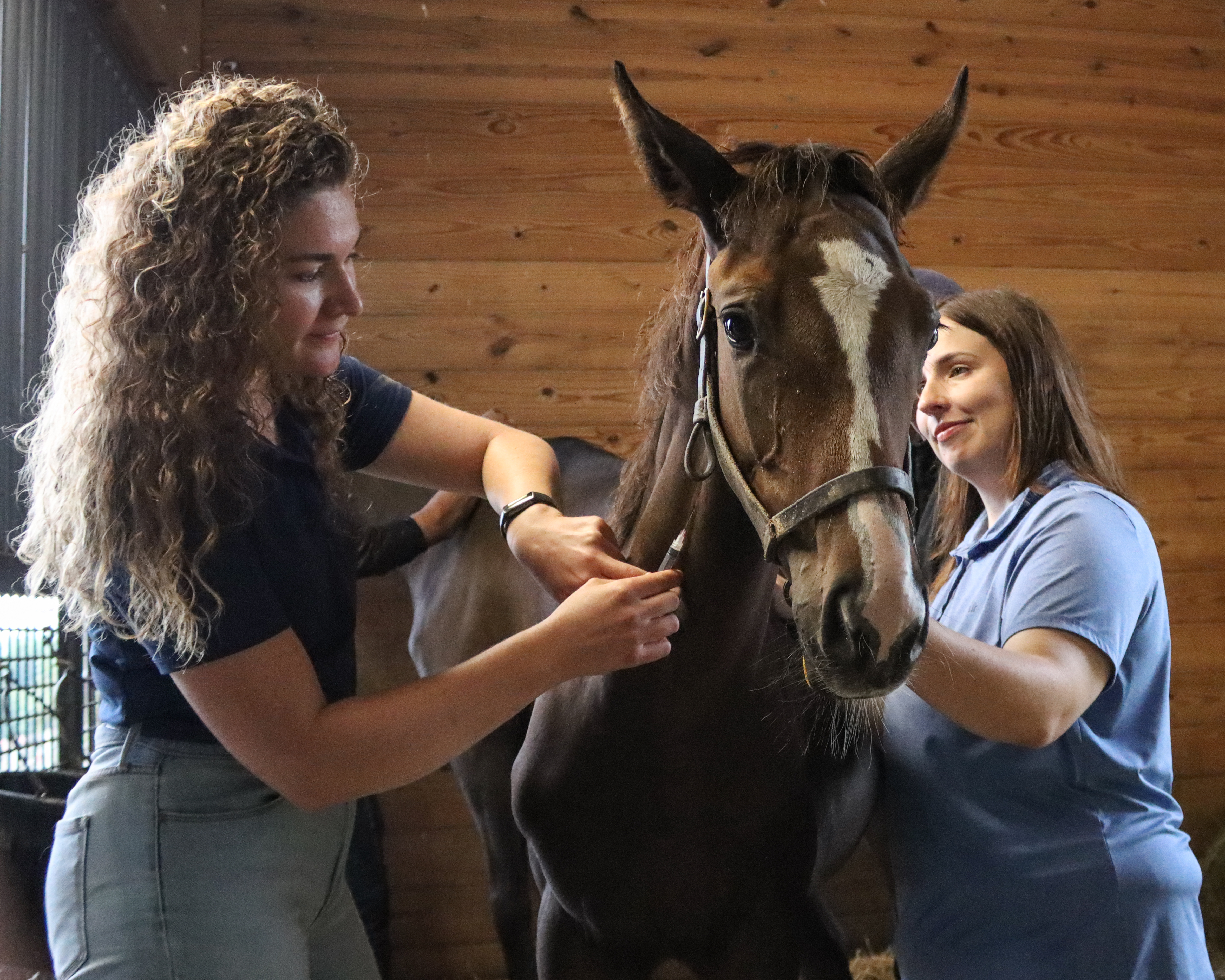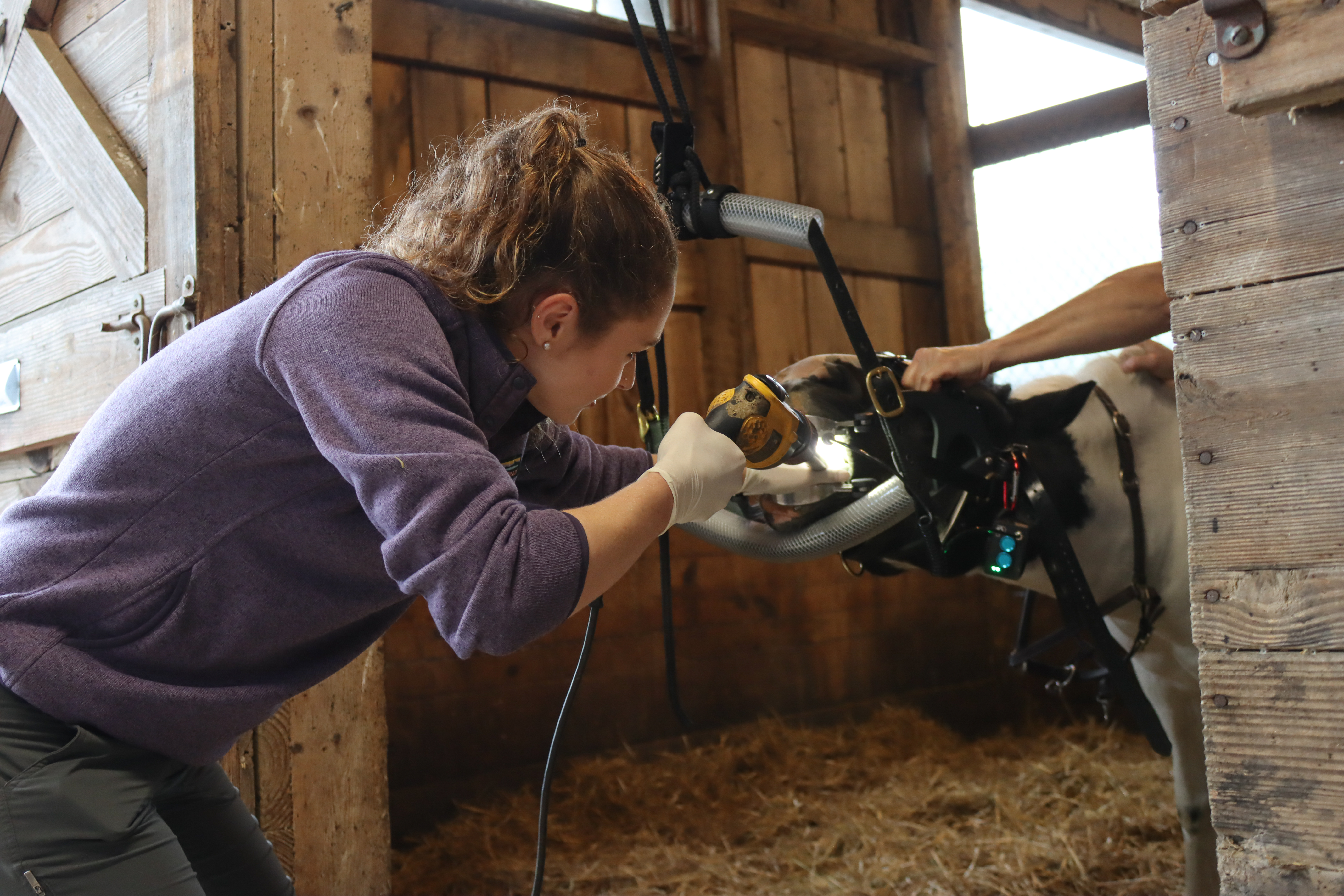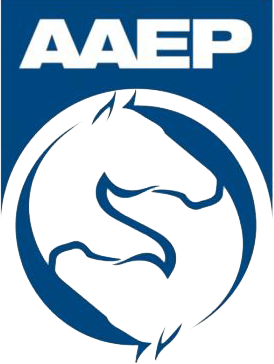Preventative Medicine
 Vaccinations
Vaccinations
Comprehensive vaccine protocols prevent many potentially lethal equine diseases. Protocols for vaccination vary based on age, vaccination history, exposure risk, geographic location, and use of each individual.
At Hess Equine we base our core protocols on recommendations from the American Association of Equine Practitioners (AAEP). Regionally appropriate vaccines such as Botulism and Potomac Horse Fever are also routinely recommended.
 Dental Care
Dental Care
Routine dental care is an important component of maintaining a horse’s wellbeing. We recommend having your horse’s teeth evaluated at least once annually, under sedation and with a mouth speculum. Missing and damaged teeth as well as oral conformation can contribute to a need for more frequent dentistry.
We utilize power floats to perform a thorough dental float of all appropriate teeth. Power floating is a safe procedure which is more effective than hand tools at targeting individual sharp teeth. Further, the use of the power float minimizes the amount of time necessary for your horse to have a comprehensive dental float performed.
Parasite Control
Guidelines for equine internal parasite control are targeted to minimize the development of resistance to dewormers. We recommend that a targeted and strategic deworming plan specific to your horse be created based on regular fecal egg counts (FEC) . Parasite egg shedding can vary widely between individuals, so all horses should be evaluated regularly.
Nutrition Evaluation
Our veterinarians are able to help you determine an appropriate and balanced diet based on your horse’s health and needs. Age, level of work, pasture/turnout, health conditions, current weight, and dentition are only some of the details that are taken into account when formulating a suitable diet or feeding plan for your horse.


